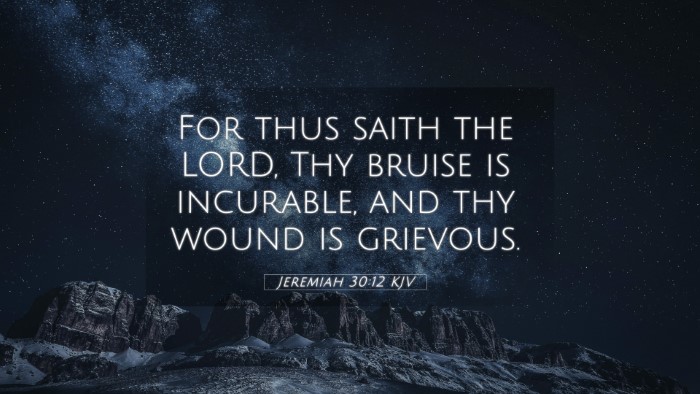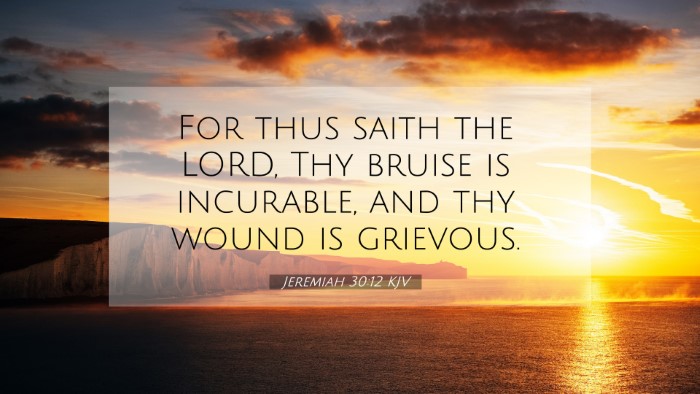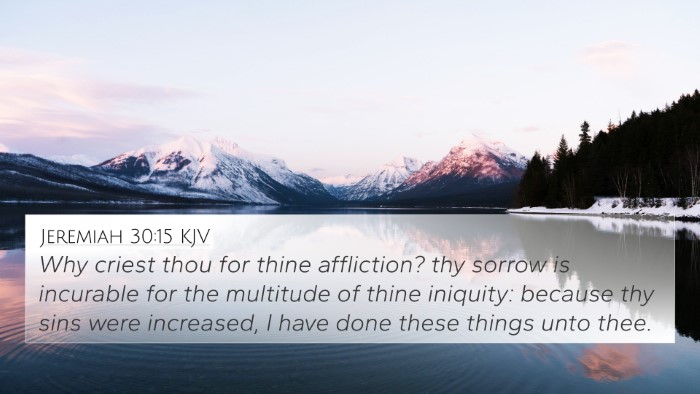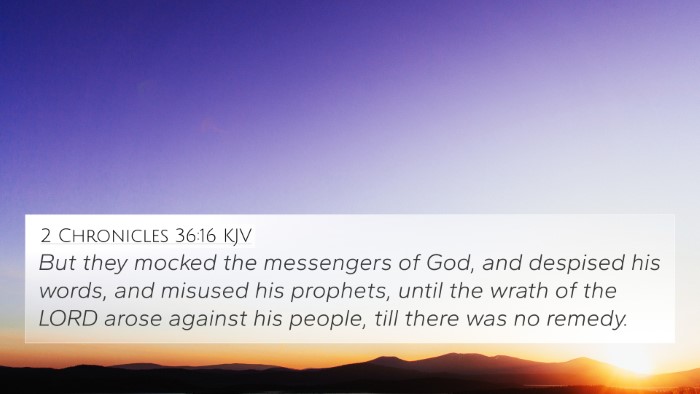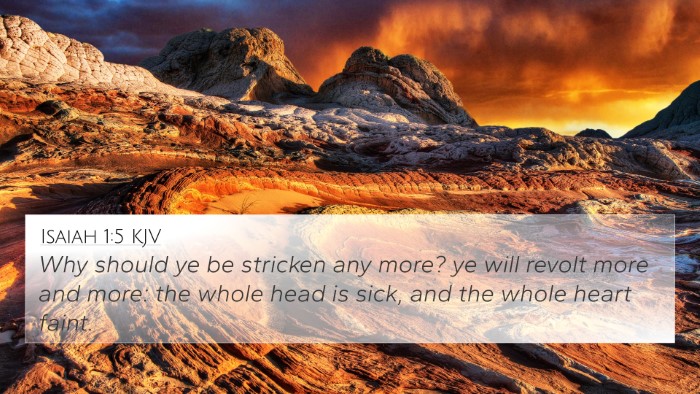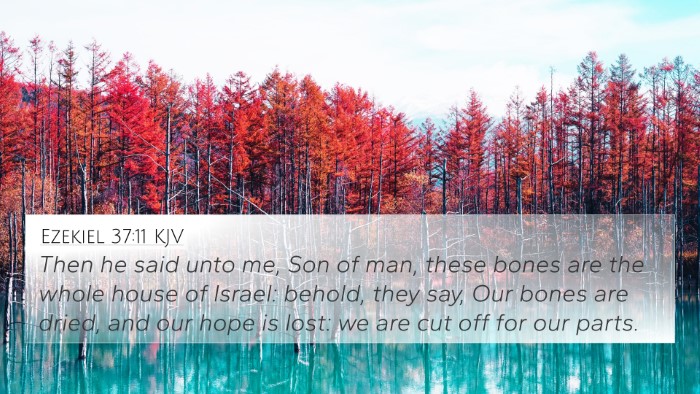Understanding Jeremiah 30:12
Jeremiah 30:12 states:
"For thus says the Lord: Your hurt is incurable, and your wound is grievous."
Summary of Meaning
This verse expresses a deep sense of suffering and affliction faced by the people of Judah. The language used indicates that their condition is severe and not easily remedied. The commentary from prominent theologians provides insight into the implications of this suffering and its significance within the broader context of God's covenant with Israel.
Key Insights from Public Domain Commentaries
-
Matthew Henry:
Henry points out that this verse signifies the ultimate despair that comes from sin and disobedience. The term "incurable" suggests not just physical wounds, but a deeper spiritual condition that requires divine intervention. He emphasizes that while God acknowledges their grievous state, there is still hope for restoration.
-
Albert Barnes:
Barnes elaborates on the idea that the suffering is a result of God's judgment, and although the wound is grievous, it prompts the people to turn back to God for healing. He connects this emotional distress to the anticipated promise of future restoration and emphasizes that healing can only be found in divine grace.
-
Adam Clarke:
Clarke interprets the metaphor of a “grievous wound” as representative of the nation’s loss and suffering due to sin. He highlights that while the afflictions appear hopeless, the context of the entire book of Jeremiah shows the possibility of redemption and the restoration of God's people through repentance.
Cross-References
Jeremiah 30:12 connects deeply with several other scriptures that reinforce themes of suffering, judgment, and ultimately, hope:
- Isaiah 1:5-6: Illustrates the severity of Israel's sin and the impact on their spiritual and physical state.
- Hosea 6:1: Calls for healing and acknowledges the wounds of sin, reflecting a similar call for restoration.
- Lamentations 3:31-32: Speaks to God's faithfulness even amidst suffering, promising eventual kindness after sorrow.
- Ezekiel 34:16: God promises to seek the lost and heal the broken, directly speaking to the restorative nature of God.
- Matthew 9:12: Jesus mentions being a physician to the sick, illustrating the idea of healing from spiritual wounds.
- John 3:17: Affirms that Jesus was sent not to condemn but to save, suggesting hope from despair.
- 1 Peter 2:24: Discusses Christ bearing our wounds, connecting to the redemptive theme central to healing.
- Psalm 147:3: Claims that God heals the brokenhearted, indicating His power over our deepest wounds.
- Revelation 21:4: Promises a future without pain and suffering, culminating the narrative of healing and restoration.
Thematic Connections
This verse draws attention to several thematic connections within scripture, illustrating:
- Sin and Consequence: The acknowledgment of sin's serious implications and God’s judgment.
- Hope in Restoration: The promise that despite present suffering, there is a path to healing and redemption.
- The Nature of God's Mercy: Even the most grievous wounds can be healed through God’s compassionate nature.
Conclusion
Jeremiah 30:12 serves as a profound reminder of the consequences of sin while simultaneously holding forth the promise of redemption and hope. The cross-references help to build a richer understanding of God's character and His plan for restoration. For those exploring these themes, the verse opens up paths for deeper inquiry and reflection on God's promises found throughout scripture.
Tools for Further Study
For a more comprehensive examination of Bible verses related to Jeremiah 30:12, consider utilizing:
- Bible Concordance
- Bible Cross-reference Guide
- Cross-referencing Bible Study Methods
- Comprehensive Bible Cross-reference Materials
Author's Reflection
In studying Jeremiah 30:12, believers are encouraged to recognize the depth of their wounds while also seeking the healing that comes solely from God’s grace. As one delves into scripture using tools for Bible cross-referencing and thematic exploration, the connections between various Bible verses will become clearer, enriching one’s faith and understanding.

